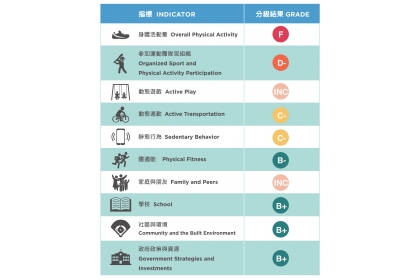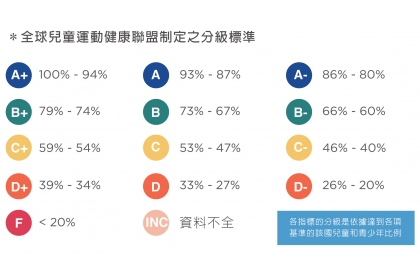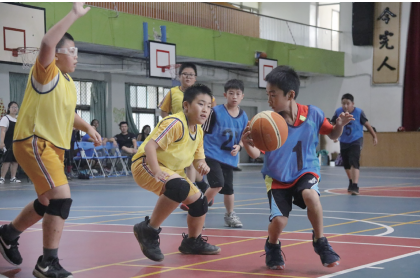NCHU and NTSU jointly published Taiwan's first physical activity report on children and teenagers
2019-06-11
興新聞張貼者
Unit秘書室
2,116
The first physical activity report for children and teenagers in Taiwan was released. The National Taiwan Sport University (NTSU) and the National Chung Hsing University (NCHU) team took more than a year in the research project. The results indicated that overall physical activity of children and teenagers in Taiwan failed to meet the basic standards as most of their activities are physically inactive. The government and schools made investments in resources that promotes physical activities for children and teenagers, but fail to produce significant positive results.
In order to fulfill the social responsibilities, and to urge public awareness in children and teenagers’ physical activities and health, the NTSU and NCHU team led by Chen-Kang Chang(張振崗), Vice President of NTSU and Chin-Lin Wu(巫錦霖), Director of the Institute of Sports and Health Management, NCHU, collaborated with the Global Children's Health Alliance, released the first physical activity report for children and teenagers in Taiwan this year. In fact, the alliance made up of 49 countries.
The report includes 10 evaluation indicators, and Taiwan's performance in each indicator can be referred in the table below. Children and teenagers in Taiwan scored low in physical activity and physical fitness, and mostly inactive behavior. Although the government and the schools had implemented all kinds of policies and invested in many resources to improve the physical activities the results proved that they are not effective and the schools need to provide more physical activity opportunities, such as sports clubs and organizations, to make up for the lack of sports teams in the schools. In addition, there is a need for future research to explore the impact of family and friend support on promoting physical activities.
assessment reports of 49 participating countries, the overall physical activity of children and adolescents in all countries is generally insufficient. Only Slovenia is rated A-, the rest are below C+, and are rated as D. -~D+, of which six countries have a rating of F (less than 20%), of which Asian countries account for three more, including Taiwan, South Korea, and China.
In order to fulfill the social responsibilities, and to urge public awareness in children and teenagers’ physical activities and health, the NTSU and NCHU team led by Chen-Kang Chang(張振崗), Vice President of NTSU and Chin-Lin Wu(巫錦霖), Director of the Institute of Sports and Health Management, NCHU, collaborated with the Global Children's Health Alliance, released the first physical activity report for children and teenagers in Taiwan this year. In fact, the alliance made up of 49 countries.
The report includes 10 evaluation indicators, and Taiwan's performance in each indicator can be referred in the table below. Children and teenagers in Taiwan scored low in physical activity and physical fitness, and mostly inactive behavior. Although the government and the schools had implemented all kinds of policies and invested in many resources to improve the physical activities the results proved that they are not effective and the schools need to provide more physical activity opportunities, such as sports clubs and organizations, to make up for the lack of sports teams in the schools. In addition, there is a need for future research to explore the impact of family and friend support on promoting physical activities.
assessment reports of 49 participating countries, the overall physical activity of children and adolescents in all countries is generally insufficient. Only Slovenia is rated A-, the rest are below C+, and are rated as D. -~D+, of which six countries have a rating of F (less than 20%), of which Asian countries account for three more, including Taiwan, South Korea, and China.




